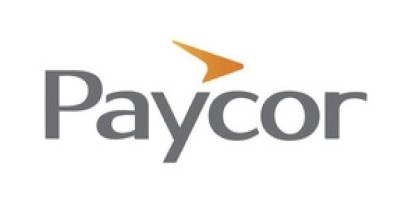
Expert employer organizations(PEOs)are third-party business that provide outsourced payroll and personnels (HR) assistance.
Entrepreneur and executives may employ PEOs if they’re short on time or have a lot of staff members to keep an eye on by themselves. Indeed, it’s a more available and cost-efficient option than working with internal experts, however there are disadvantages. You should have a strong spending plan and an open mind when dealing with an external organization.
Let’s take a better look at what a PEO is, what its strengths and weaknesses are and who it’s finest for.
Jump to:
1
QuickBooks< a href="https://link.technologyadvice.com/569bcfef-51b7-48e3-a9e4-cfe2e1fda309?country=US&targeting_set_uuid=f5a34f7e-dd15-4d09-8245-f91a0b5fb5cd&position=1&placement=body&layout=horizontal&source=https%3A%2F%2Fwww.techrepublic.com%2Farticle%2Fprofessional-employment-organizations&"target=" _ blank"> QuickBooks from Intuit is a small company accounting software application that permits companies to manage business anywhere, anytime. It provides companies with a clear view of their profits without manual work and provides smart and easy to use tools for business.
Learn more 2 Paycor Payroll can be a lengthy, administrative job for HR groups. Paycor’s solution is a user friendly yet effective tool that provides you time back in your day. Rapidly and easily pay staff members from wherever you are and never ever fret about tax compliance again. Key features like basic ledger integration, made wage gain access to, AutoRun, staff member self-service
and comprehensive reporting streamline
the process and help guarantee you pay workers precisely and on time. Learn more 3 Justworks Payroll is a lightweight service that streamlines Payroll and HR operations so you can focus on what matters most– running your service. Our user-friendly navigation, paired with trustworthy support, helps you monitor and maintain compliance, onboard and manage your teams, and
browse the
complex world of payroll with confidence. Designed for today’s needs and tomorrow’s aspirations, our versatile solutions will raise your operations & supply the tools for your company to thrive. Find out more What is a PEO? As pointed out above, professional employer organizations are essentially professionals, and they cover your payroll and human resource
requirements. For instance, a PEO can file your taxes, issue paychecks and answer employee benefits questions. Think about a PEO as an a la carte, prepackaged human resources department. You can purchase their services as required and stick to
- them till you put an internal HR team together.
- They’re all set to opt for personnel, software application and knowledge,
- so you can confidently hand over your
- payroll and HR operations– all for convenience and peace of
mind. PEO example There are many PEOs out there. Some target specifically small companies, yet others supply services to any size entity. A few of the leading PEOs include Papaya Global, Paychex and TriNet, which we cover in our list of favorite PEOs. Nevertheless, our number one choice is ADP TotalSource. It serves organizations with 5 to 250 employees, and a few of its primary offerings include: Payroll and
tax services. Employees ‘compensation and claims management. HR competence. Advantages strategies. Working with assistance and staff member retention. These sort of services are fairly standard for PEOs with some difference based upon specialized or special capabilities, but it’s likewise crucial to browse user reviews to get a sense of how pleased a service’s clients are and what level of quality you can anticipate. What are the benefits of a PEO? The overarching appeal of expert company companies(PEOs)is their cash-and time-saving value. For instance, small-business owners
- generally use a PEO in lieu of working with fancy administrative teams. More payroll protection However there are other benefits too: Better employee morale: Staffers suffer when there is inadequate administrative assistance.
- A PEO can make sure a high standard of assistance is always available, enhancing spirits. Access to experts: PEOs have groups of specialists in HR, benefits and compliance. This knowledge makes it possible for small businesses to make sound decisions.
- Versatility: PEOs provide customized solutions with numerous strategies and services. This technique can fit any budget or requirement.
- Scalability: PEOs can help small companies scale up or down as required. You don’t need to hire more individuals to support a growing workforce. Conversely, letting go of PEO assistance when cash’s tight is an alternative if you need it and aren’t secured a contract.
For many companies, PEOs spend for themselves. After all, they’re usually more affordable than hiring in-house experts from scratch. Plus, their specialized knowledge helps you avoid costly concerns like a missed tax due date or compliance problems.
What are the downsides of a PEO?
Nothing’s best in life, and PEOs are no various.
Initially, you’ll require adequate employee to justify contracting a PEO. A dozen or more workers is a great guideline, but this can differ. Any less and it’s most likely simpler to keep things informal and in-house– more than likely in a bare-bones plan.
You’ll likewise need a proper budget. Undoubtedly, a PEO is out of the concern if you’re scraping by or are waiting to see if profits picks up. PEOs conserve cash just when compared to hiring internal professionals. They’re still a costly proposition, though.
There are other downsides to think about:
- Loss of control: PEOs take control of a number of the HR works that small-business owners normally handle themselves, such as payroll, benefits administration and other HR jobs. This can feel like a loss of autonomy for some folks.
- Absence of versatility: PEOs usually provide more general services, which may only fit some organizations well. If a business has extremely specialized HR needs, such as worldwide payroll operations, discovering a PEO that can accommodate all its particular needs might be challenging.
- Lowered personal privacy: When a service outsources its HR works to a PEO, it’s sharing personal staff member information with that company. This disclosure can feel concerning to privacy-conscious people.
- Lowered control over employee relations: When a PEO handles an organization’s HR functions, you’ll have less control over employee relations issues. This loss of oversight is bothering if you want strong authority over hiring, shooting and discipline.
PEOs can be a great choice for some small companies, however they are not without their concerns. You’ll need flexibility, an open mind and a comfortable budget plan to conquer these downsides. And it’s all right if you’re not rather at the ideal stage for a PEO– there are lots of excellent payroll software out there to assist you in the meantime.
Why would a business use a PEO?
Usually, smaller sized companies still searching for their footing use a PEO. This situation consists of entities with uncertain futures, recently introduced endeavors and those not yet able to afford big internal administrative teams.
Here are some circumstances that make a PEO a great concept:
- Healthy spending plan and cash flow: PEOs can conserve cash over in-house groups, however they are still pricey. If you have money to spend, these external organizations can supply excellent worth and time-savings.
- Growing workforce: More staff members means a higher requirement for administrative workers. A PEO can quickly solve this support space if you ‘d rather not take on more human resources personnel.
- Highly regulated market: If your service falls under stringent governmental oversight, then a PEO can keep things in check. For instance, an at-home nursing service can concentrate on required HIPAA training rather of going to personnels conventions.
- Uncertain outlook: If your organization is rough, a PEO can vanish or return a lot easier than in-house workers. You won’t have to lay off administrative staff, for one consideration.
- Complicated tax obligations: Most people don’t like doing taxes. If this explains you, a PEO can take these pesky responsibilities off your plate. This relief is valuable if you have a complicated tax situation, like staff members in lots of states.
In general, a PEO is tailored toward growth. Small companies use these organizations to keep their focus on their core service instead of bothering with administrative jobs.
Real-life examples
A young startup company is a good example of a service appropriate for a PEO. Start-ups typically do not have the resources to employ a full-time HR department. They’re also unsure of their future, and avoiding layoffs is ideal. This theme of unpredictability makes a PEO a quick, straightforward option to manage administrative jobs.
Another example of a small business that may utilize a PEO is a service with seasonal staffing variations. As you diminish operations, you can quickly scale down PEO services and vice versa. On the other hand, you would need to carry out hard layoffs if you had an internal team.
When shouldn’t a company utilize a PEO?
A company’s monetary situation and workforce size are 2 top factors when thinking about a PEO. You should have enough cash and personnel to validate a PEO. On the other hand, if you’re a fully grown business that’s flush with money, hiring an in-house team may much better match you.
A PEO is wrong for you if your organization:
- Uses a really little number of individuals: PEOs usually require a minimum variety of workers to be economical.
- Has a specific set of HR needs that a PEO can not fulfill: PEOs usually offer a standard set of HR services and may not be able to fulfill the specific needs of a business with special HR requirements.
- Is unwilling to quit some control over its HR functions: When a company uses a PEO, it is outsourcing its HR function to the PEO. As a result, the business will no longer have complete control over its HR policies and treatments.
- Keeps a tight budget plan: PEOs normally charge a monthly cost based on the variety of employees the company has. These fees can be pricey, so businesses need to ensure the advantages surpass the expenses.
- Is risk-averse: Using a PEO implies trusting them with 2 sensitive and important departments– payroll and personnels. If the PEO underperforms or fumbles along the method, your organization will suffer. You must feel comfy with this threat.
If you already have an internal administrative team, a PEO may trigger friction. Your team may fret they’ll get laid off or have less authority over workers matters. Luckily, a lot of PEOs provide personalized services. This tailored method indicates you can keep in-house staff and use third-party assist with additional tasks as a way to share obligations.
Secret takeaways
Professional staff member companies supply personnels and payroll assistance on a contracted basis. This third-party arrangement makes it easy, fast, and economical for services to utilize.
Yet, just some entities are suitable candidates. You’ll need a healthy spending plan and a growing labor force to justify the expenditure. Plus, you need to be open-minded to listen to a PEO’s recommendations and decisions.
1 QuickBooks
Find out more about QuickBooks
2 Paycor
3 Justworks
4 OnPay
month complimentary, or sign up with a demonstration to see everything we can do!
5 Paychex
Source
browse the








